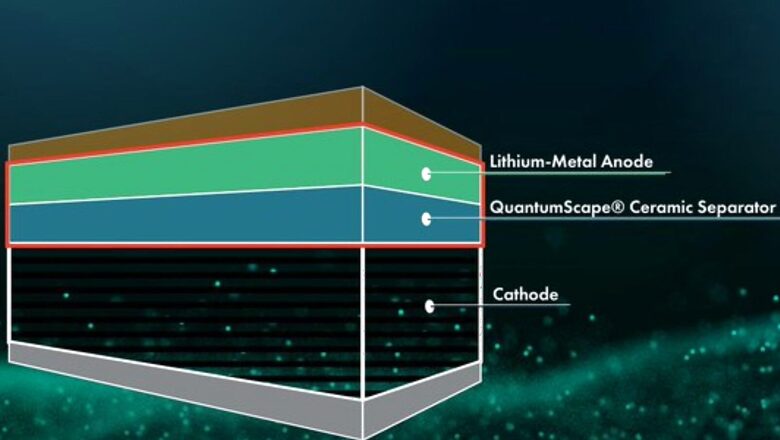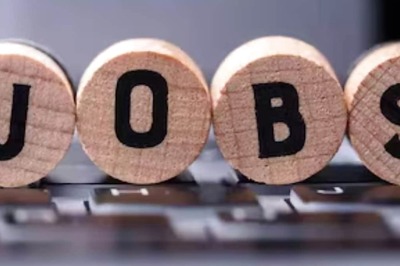
views
An American battery technology company QuantumScape is likely to be the world’s first firm to introduce solid-state batteries in the market for electric vehicles (EVs) within the next two years, as it claimed that people will be able to buy an electric car with its batteries as soon as 2024.
According to the company, a vehicle using its solid-state batteries can travel over 400 miles on a single charge before needing to be recharged in 15 minutes. Due to such specifications, solid-state EVs would have a significant edge over their rivals who rely on lithium-ion batteries, which takes almost two to three hours to fully charge.
In comparison to Li-on choices, all-solid-state batteries (ASSB) promise longer life, quicker charge times, and safer chemistry.
However, it won’t be simple to produce them on the scale required to power millions of automobiles. So, QuantumScape and other battery-focused businesses like Solid Power in Colorado and ProLogium Technology in Taiwan, as well as major automakers like Nissan, are vying for market share.
As per the company, the ASSB’s cells have been rapidly charged 400 times in a row (from 10% to 80% in 15 minutes), and some of them have experienced nearly 1,000 total discharge and charge cycles, while traditional Li-on cells or any other solid-state endeavour to date fail to reach that mark.
The ASSBs promise to have a far higher energy density than current Li-on power packs, which means that they will produce more power relative to their size or weight.
The average energy density of leading lithium-ion batteries is around 600 watt-hours per litre, but QuantumScape anticipates that their ASSB will reach 1,000 watt-hours per litre. It is believed that this might increase the typical EV’s range to 375–400 miles.
Since lithium ions frequently form dendrites on lithium batteries’ anodes over the course of many charge cycles, creating highly reactive stalagtites that can result in loss of power and even fire, QuantumScape is developing its batteries with a ceramic electrolyte as part of their battery development process.
Despite the fact that QuantumScape’s ASSB needs lithium for construction, the business claims that dendrites won’t be a problem.
Similarly, there will be some challenging factors regarding which the battery makers have to find solutions. According to experts, the great energy density of the batteries must be securely utilised by ASSB developers, considering Li-ion battery-related explosion cases.
As per the studies, ASSBs are said to be safer than Li-ion batteries overall, but their designers are aware of some potential dangers. It is understood that doubling the density means that the energy would be too high and because of that ensuring safety for ASSBs would be extremely important.
In this case, the current anode-free design of QuantumScape does not completely avoid this problem. But the company said that it still needs to conduct tests, but expects that its ASSBs will be safer than Li-ion.
However, the American company said that its early prototype cells could be sent to Volkswagen, its largest stakeholder, as early as this year.
It also intends to construct a pre-production line by the end of 2023 and supply ASSBs to Volkswagen for incorporation in a test vehicle slated for 2024 or 2025. By then, QuantumScape expects to have solid-state batteries leaving its first gigafactory.
The revolutionary promise of EVs powered by solid-state batteries has inspired auto manufacturers to join the fight alongside businesses like QuantumScape.
For example, last year, Toyota announced a $13.6-billion investment in a programme for in-house battery development and manufacturing that will also include solid-state batteries. They predicted this year that their first solid-state battery electric vehicles (SSBEVs) would hit the roads in 2025.
Meanwhile, according to reports, other companies like Nissan, have a more extensive, but loftier aim to introduce solid-state batteries. It has been researching and developing solid-state technology for the past 10 years, and the company now has claimed that it has plans to start mass-producing batteries by 2028.
Read all the Latest News , Breaking News , watch Top Videos and Live TV here.




















Comments
0 comment